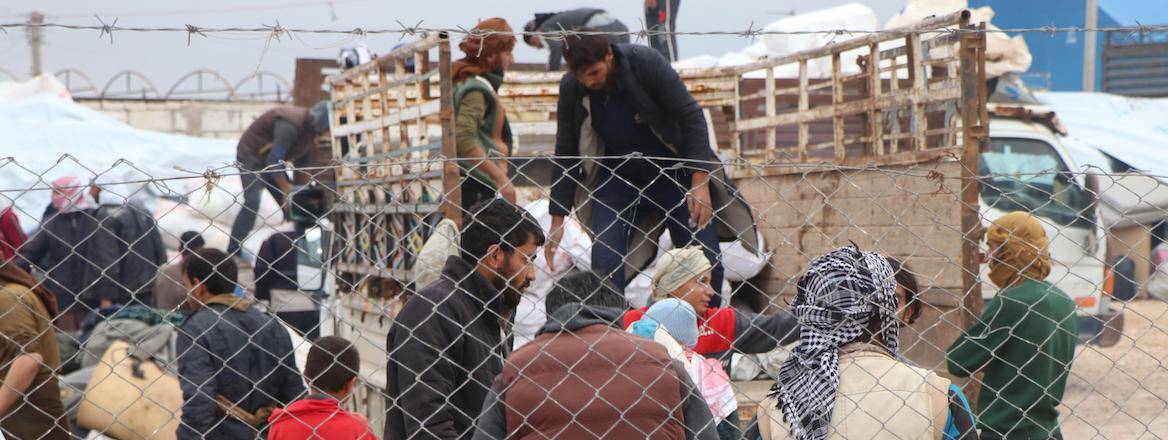Recording: Paper Launch: Resolving the Stalemate: Foreign Fighters and Family Members in Syria
The webinar discusses the findings and key recommendations detailed in the RUSI research paper on ‘Resolving the Stalemate: Foreign Fighters and Family Members in Syria'
Overview
Published in December 2021, the paper assesses the risks to national and transnational security posed by foreign terrorist fighters and their families, and considers how global leadership and multilateral solutions are necessary to address them.
The collapse of the Islamic State ‘caliphate’ in March 2019, while a positive development overall for international security, has created an enduring security challenge in the form of tens of thousands of Islamic State fighters and family members from some 60 countries who are still in northeast Syria. Held by the Autonomous Administration of North and East Syria (AANES) and the Syrian Democratic Forces (SDF) in a number of camps and prisons, often in appalling conditions, there is little prospect at present for those who have committed abuses to be tried and convicted, either in Syria or in their countries of origin.
The current international response is one of containment, but this is not sustainable. As well as denying justice to those who have suffered appalling abuse by the Islamic State, this presents a growing security threat as the AANES/SDF cannot continue indefinitely to hold people securely. Few countries have repatriated significant numbers of their citizens, with most European countries only allowing a small number of children (and in some cases mothers) to return. The appalling conditions in which many are held will likely lead to further radicalisation, while the (re)opening of spaces such as Afghanistan creates possibilities for mobilisation of foreign fighters.
The paper charts a way out of the current impasse. It proposes concerted global action, including setting up an international task force to coordinate and drive progress, pushing for prosecution of those fighters who have committed crimes (including war crimes as well as terrorism-related), prioritising children for repatriation and support, and strengthening national public protection tools, including deradicalisation, disengagement and reintegration capabilities.
This is an exceptionally complex and contested issue. Yet failure to act will not only risk repeating the mistakes made prior to 9/11 and in handling the subsequent terrorist attacks, but could also have generational consequences for global peace, security and prosperity.
About the speakers
The webinar is chaired by Suzanne Raine, RUSI Trustee and former Head of the UK’s Joint Terrorism Analysis Centre.
She is joined by Sabin Khan, RUSI Senior Associate Fellow and author of the report, Sir Mark Rowley, RUSI Distinguished Fellow and former National Police Lead for Counter Terrorism and Assistant Commissioner in the Metropolitan Police Service, and Eric Rosand, RUSI Senior Associate Fellow and Director of the Prevention Project: Organising Against Violent Extremism.
FEATURING
Suzanne Raine
RUSI Trustee
Sabin Khan
Sir Mark Rowley
Distinguished Fellow
Eric Rosand
RUSI Senior Associate Fellow, Terrorism and Conflict





